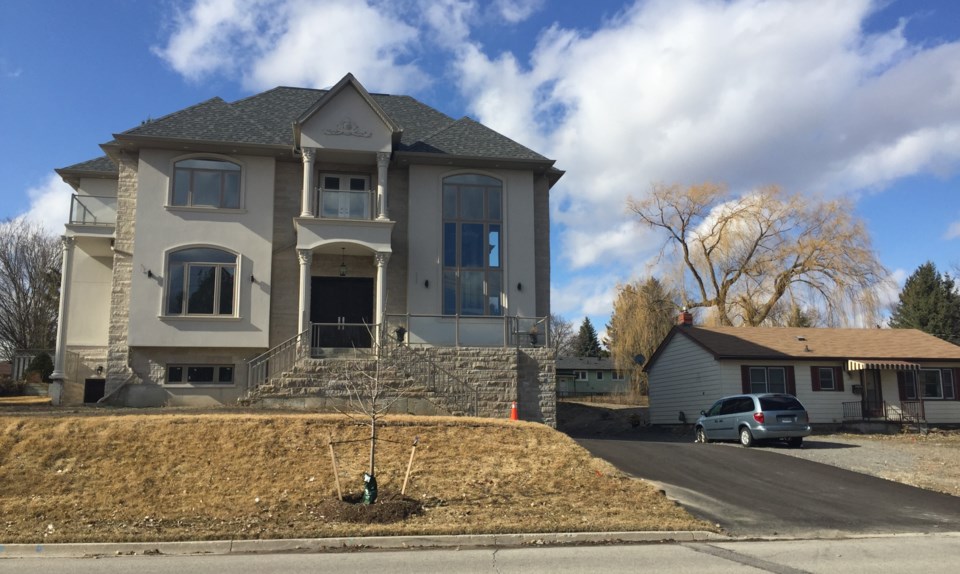Newmarket’s temporary building ban to stop so-called monster home construction is set to expire soon as the study that will guide future infill development in the town’s established neighbourhoods nears completion.
The building ban known as the interim control bylaw came into force Jan. 21, 2019, and has twice been extended until Jan. 21, 2021. It was meant to put a freeze on new home building on single or vacant lots, and pause most additions to existing homes in many established and emerging areas in Newmarket.
An exemption process for homeowners seeking to carry out small-scale renovations was approved in May 2019 and since that time, 16 applicants have asked for council approval for their projects.
So far, 11 of those exemption requests were approved provided the work met specific physical and streetscape character compatibility tests.
Now, the established neighbourhood study that will guide new town policies on infill development is in the final stages with a virtual public meeting planned for Aug. 31, 2020.
Once resident feedback is incorporated into the report, the final recommendations will be presented to council at its Oct. 5 committee meeting.
With new policies imminent around the issues of compatibility of such things as new residential homes in established neighborhoods, the cutoff for exemption requests to the temporary building ban will be Aug. 24 by 4:30 p.m.
Mayor John Taylor said as the study comes to a conclusion, it wouldn’t be appropriate for homeowners to bring an exemption forward if a new set of rules will soon be in place.
“As we get close to the end of that process and we have before council a new set of recommendations, and then adopted recommendations for policy changes related to infill and compatibility, it makes sense to have a blackout period for exemptions prior to the change of the landscape of the rules that we may be applying to infill, or a new house or lot splitting,” Taylor said.
Councillor Victor Woodhouse said he would be hesitant to vote in favour of a homeowner’s exemption request so close to new rules coming into effect.
“If there’s a request for an exemption and it’s close to the line, I’m going to vote that it waits and follows the process,” Woodhouse said. “I don’t know that anybody would purposely try to get something in under the line but if it’s close, I’m not going to be in favour of that.”
The $150,000 established neighbourhood study is expected to help the town draft new policies to guide infill development that is in line with a neighbourhood’s identified unique characteristics.


